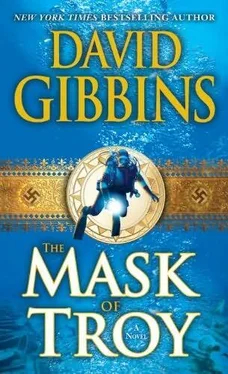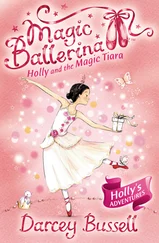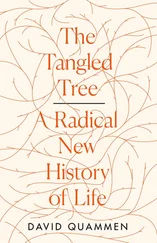David Gibbins - The Mask of Troy
Здесь есть возможность читать онлайн «David Gibbins - The Mask of Troy» весь текст электронной книги совершенно бесплатно (целиком полную версию без сокращений). В некоторых случаях можно слушать аудио, скачать через торрент в формате fb2 и присутствует краткое содержание. Жанр: Триллер, на английском языке. Описание произведения, (предисловие) а так же отзывы посетителей доступны на портале библиотеки ЛибКат.
- Название:The Mask of Troy
- Автор:
- Жанр:
- Год:неизвестен
- ISBN:нет данных
- Рейтинг книги:3 / 5. Голосов: 1
-
Избранное:Добавить в избранное
- Отзывы:
-
Ваша оценка:
- 60
- 1
- 2
- 3
- 4
- 5
The Mask of Troy: краткое содержание, описание и аннотация
Предлагаем к чтению аннотацию, описание, краткое содержание или предисловие (зависит от того, что написал сам автор книги «The Mask of Troy»). Если вы не нашли необходимую информацию о книге — напишите в комментариях, мы постараемся отыскать её.
The Mask of Troy — читать онлайн бесплатно полную книгу (весь текст) целиком
Ниже представлен текст книги, разбитый по страницам. Система сохранения места последней прочитанной страницы, позволяет с удобством читать онлайн бесплатно книгу «The Mask of Troy», без необходимости каждый раз заново искать на чём Вы остановились. Поставьте закладку, и сможете в любой момент перейти на страницу, на которой закончили чтение.
Интервал:
Закладка:
‘He’s ninety-three.’
‘Come on.’ Dillen took Rebecca in his arms, and gave her a hug. ‘Chin up, as Hugh used to say.’
Rebecca sniffed, nodded and opened the screen door and then the heavier wooden door behind. It was very warm, and Dillen quickly shut the door behind him. His glasses steamed up and he took them off to wipe them. There was a fire in the room to the right, a warm orange glow, and at the end of the stone-flagged floor ahead he could see a kitchen with someone moving around, a kettle on the boil. Rebecca gestured to a doorway to the left. ‘Keep your jacket on,’ she said. Dillen followed her into a dining room with a partition wall and an open veranda. On the patio beyond he could see several rocking chairs facing a garden, partly obscured in the mist.
Jack was there, standing quietly at the entrance to the veranda, arms folded, looking out. He turned as he heard them, then put his finger to his lips and beckoned them over. Rebecca let Dillen go first. He nodded at Jack, and then peered round the open door on to the patio. Hugh was sitting outside in a wicker chair, swathed in a blanket, facing away from them. His thick white hair was carefully combed back. Dillen looked beyond, where Hugh was facing. The garden was long, narrow, shrouded in mist, enclosed on either side by high hedgerows. It was facing in the same direction as the railway line, which was visible through a break in the hedge to the left.
Dillen peered down the garden, straining his eyes for what he knew must be there.
Then he saw her.
She was sitting like Hugh with her back to them, bundled up in a thick coat and scarf. He could tell it was a woman, from her shape, from the long hair that tumbled down her back beneath her scarf, wavy and thick. It was white, but it could have been fair. He knew it was an old woman, but it could have been a girl. The image came in and out of view in the mist, sometimes sharply delineated, sometimes barely visible. Suddenly he saw her very clearly. She was sitting behind a musical instrument, large, unmistakable.
The girl with the harp.
Dillen couldn’t see Hugh’s face, or hers. He remembered his vision at the railway line, the image of himself crouched beside it. Here, it was two figures, but the image was the same, torn through by the line of the hedgerow, with the railway track beyond. He shivered, and took a step back. His breath crystallized, but he saw barely any breath in front of Hugh. He looked at Hugh’s hands. They were white-knuckled, clutching at the arms of the chair, trembling.
There was a whinny and a stomp, and a white horse appeared, its head peering over the hedge, shaking its long mane, and then it snorted and cantered off out of sight. It had been the only sound he had heard outside, and it was startling. Jack put his hand on Dillen’s shoulder, and then reached over and pulled the door to, leaving it slightly ajar. There was a sound of tinkling, and Dillen turned to see a woman place a tray of drinks and biscuits on the table. She was small, elderly, and was followed by a man of similar appearance. Dillen stepped forward and shook hands with them. The woman spoke English with an east European accent. ‘Welcome to our home. Can I offer you tea? Coffee?’
‘Thank you. Tea, please.’ Dillen gestured to the patio. ‘What about Hugh?’
‘He’s already had his hot chocolate,’ Rebecca said, smiling sadly. ‘Said it was the best he’d had since the war.’
‘Did you tell him that she was here?’
‘You can’t keep anything from Hugh,’ Jack said quietly, smiling. ‘Former intelligence officer, you know. Had to have the full operational briefing before we flew out. But it’s been a very big thing for him. He’s been like that since we sat him out there half an hour ago.’
‘And the… girl?’ Dillen said. ‘How long has she been there?’
‘Every day,’ the Polish man said. ‘Every day, for as long as we have cared for her. She is the last of the children. Now that winter is drawing in, we’ll bring her back in before too long. She has a hot-water bottle. She’s warm.’
‘Does she ever play?’ Dillen asked. ‘I mean, the harp?’
‘We think she plays for her parents, in her mind, all the time. We think they loved to hear her play. We never hear it, but sometimes when you get close you can hear her humming quietly to herself, and you can see her fingers playing, nearly touching the strings. Children’s songs, learning songs. The horse can hear it too, we’re sure. It’s got a beautiful mane, don’t you think? It rises in the wind like the waves on the sea. We think she must have had a horse as a child. That horse is descended from the white horse that the camp commandant, Rudolf Hoess, liked to ride, when he played with his own children by the river here.’
‘How…’ Rebecca said, her voice little more than a whisper. ‘How could he do that?’
The woman shook her head, and continued organizing the tray. Dillen thought of what Rebecca had just said. Apollodorus of Rhodes knew it. There is no mighty bulwark against evil war. Once total war was unleashed, once Troy had fallen, it was there always, tempting, beckoning. All that was left to hold it back was the will of the individual. And maybe Schliemann had known. It may have been his fervent hope. Individuals have the power to shape history.
Dillen opened his folder and took out a few sheets of paper. ‘I’ve brought the Ilioupersis, the fall of Troy. It’s a hundred and twenty-six lines, the entire text that Jeremy and Maria found in the lost library at Herculaneum,’ he said. ‘I want to read it to you.’
‘Have you kept the Greek metre?’ Jack asked.
Dillen shook his head. ‘It wasn’t written that way. It retains some of the imagery, the familiar epithets of the Iliad, but it’s in a kind of free verse. Hugh and I found it disconcerting, at first. How could this be Homer, if it wasn’t written in his famous iambic pentameter? But then we realized why. The pentameter of the Iliad was suited to the heroic cycle, to the story of men powerless to shape their fate, acting on a stage created by the gods, relentless, repetitive. And it was suited to memorization, to the beat of the bard, to the accompaniment of the lyre. But the Ilioupersis is different. The heroes are all dead. The gods are gone. Man is ascendant.’
‘You mean the course of the story is no longer predictable, no longer familiar to the audience, time-honoured,’ Jack murmured.
Dillen nodded. ‘In the Ilioupersis, the poet describes what he sees, not a cycle according to some bardic formula. The Ilioupersis is shorn of ornament. For Homer, finishing the story of Troy that way, showing what he actually saw, was his poetic responsibility, just as it was three thousand years later for the poets of the First World War, for Graves and Sassoon and Owen and the others. The bardic tradition of the Iliad was for fireside stories of heroes, of clashes and contest, of strutting and shouting. Maybe Homer was afraid of this final truth he had written in the Ilioupersis, and put it away. Maybe his world crumbled around him as he watched and wrote, and the text was lost in the darkness at the end of the age of heroes.’
There was a low rushing sound outside, something flying overhead out of sight in the mist, the beating of wings. Jack peered out. ‘We heard that before you came, and I asked our host. It’s migrating birds, flying south from the Baltic towards Africa. Blackbirds, ravens, geese. It’s a strange coincidence, but from here they fly south-east to Gallipoli, over the Dardanelles and into Asia. In a day or two’s time, those birds will fly over Troy.’
Dillen listened, but they had gone. It was as if the birds were following a fault line, not a geographical fault but a rent in the fabric of civilization, between places that had become a terrifying crucible of death. He wondered whether Schliemann had looked up at Troy and seen those birds too, black ravens flying south, whether they had somehow brought to him a vision from the future, something so terrible it drove him to try to alter the course of history.
Читать дальшеИнтервал:
Закладка:
Похожие книги на «The Mask of Troy»
Представляем Вашему вниманию похожие книги на «The Mask of Troy» списком для выбора. Мы отобрали схожую по названию и смыслу литературу в надежде предоставить читателям больше вариантов отыскать новые, интересные, ещё непрочитанные произведения.
Обсуждение, отзывы о книге «The Mask of Troy» и просто собственные мнения читателей. Оставьте ваши комментарии, напишите, что Вы думаете о произведении, его смысле или главных героях. Укажите что конкретно понравилось, а что нет, и почему Вы так считаете.












